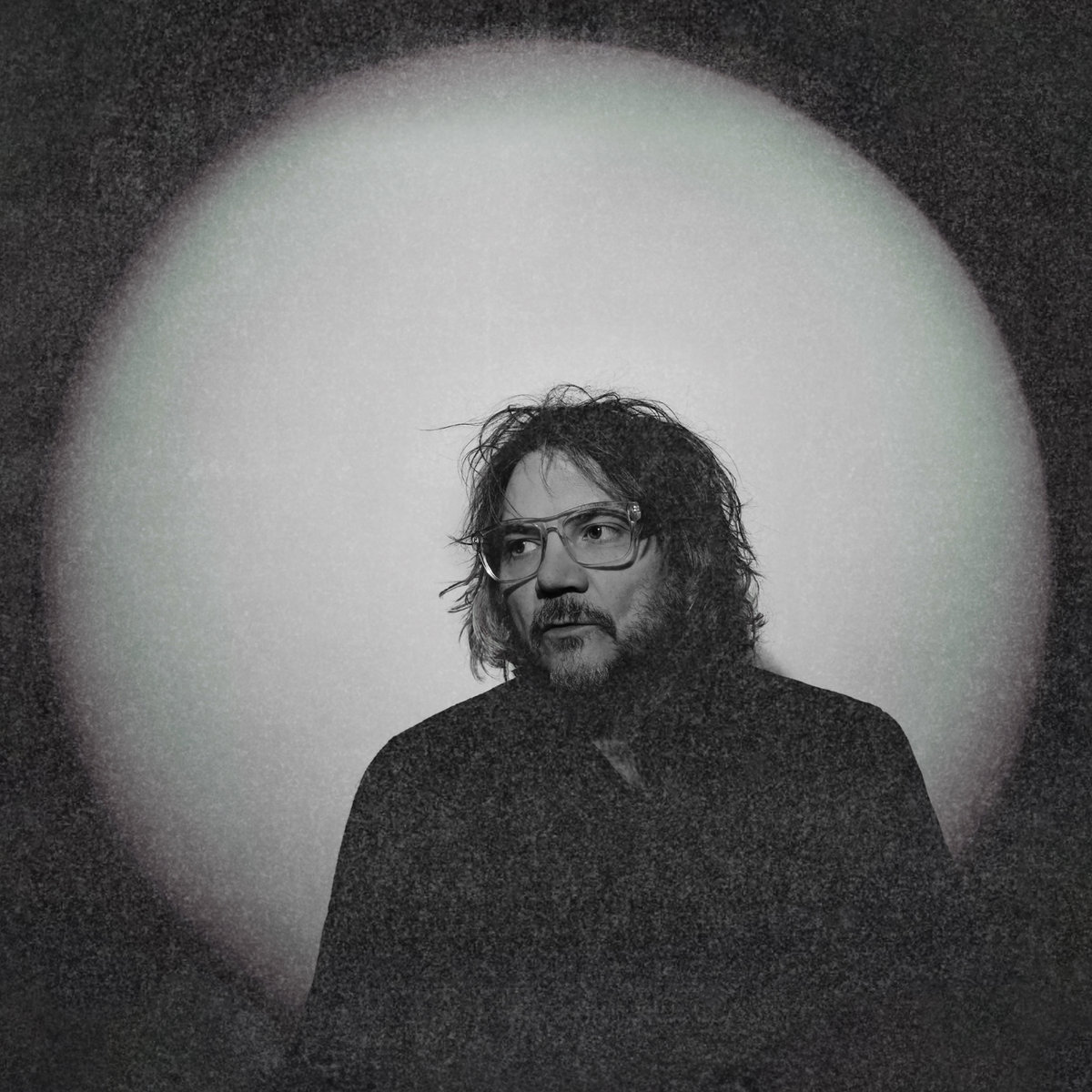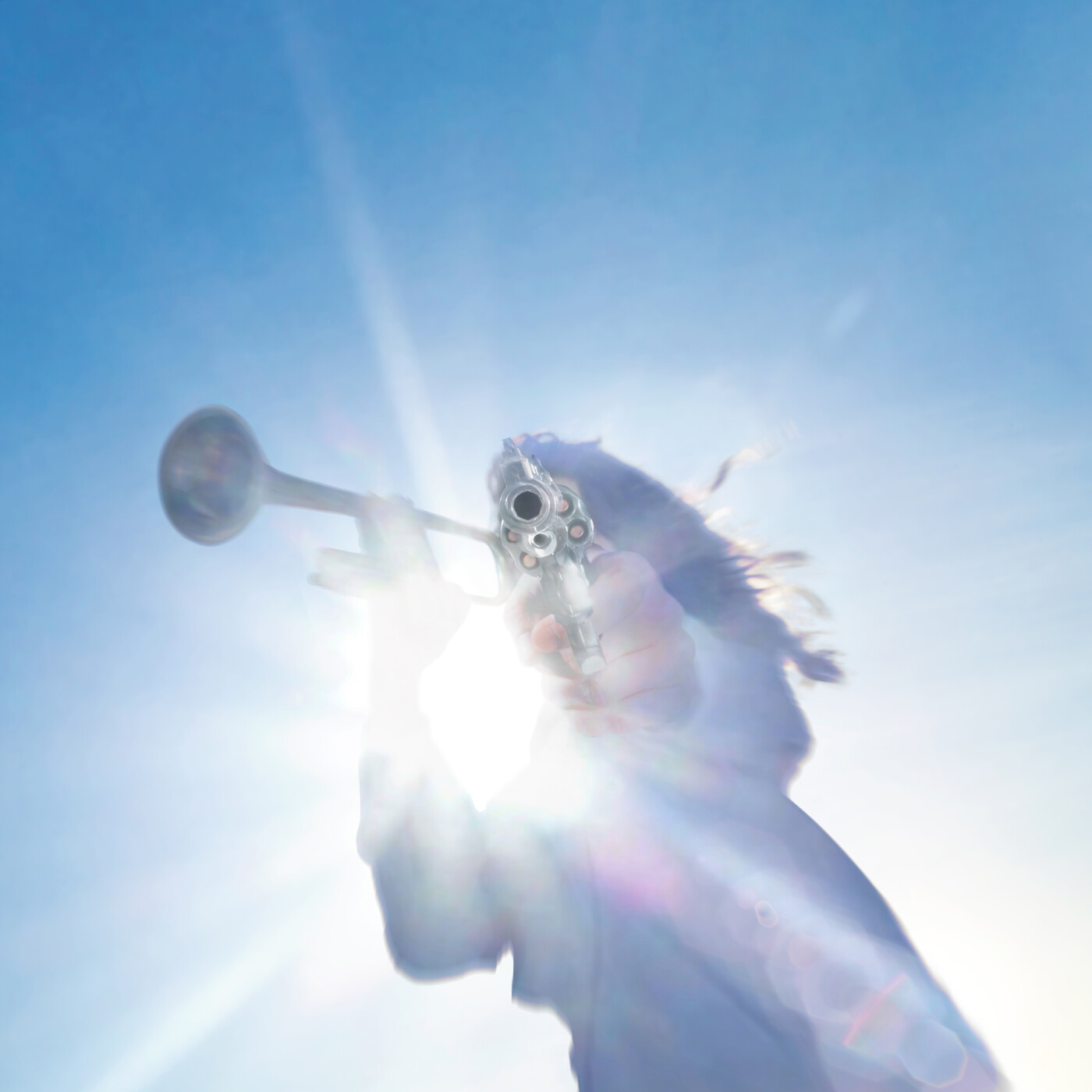I once had a college professor who gave a whole class on how important the opening sentence of a novel is. A great opening line works like a fishhook, and also like a thrown gauntlet. It pulls you immediately into the story, ideally, but it can also work as a challenge. It can jerk you away from whatever you're doing and force you into the headspace of the book you're just starting to read. "Call me Ishmael." "A screaming comes across the sky." "Happy families are all alike; every unhappy family is unhappy in its own way." "They shoot the white girl first." The opening notes of an album can do something similar. The first thing you hear can instantly reorient your expectations and force you to change the way you think about an artist, about the things that artist's music does. I'm pretty sure, in any case, that's what the xx are doing with the five horn blasts that open I See You, their third album.
Those horns don't sound like real horns. They are real horns, played by real people, but they don't sound like it. They're processed within an inch of their lives, a filtered-out callback to a few generations of proudly inhuman dance anthems. They're not fuck-you loud or anything; nothing the xx ever does is fuck-you loud. But they're defiant. This, after all, is a group that made its name on quiet atmosphere, on an elegant dance of doubt and infatuation; it's what made their debut album an all-time makeout classic. At their best, they've always built whole worlds out of the ways that Oliver Sim's bass and Romy Madley Croft's guitars quietly entangle themselves with one another. Those triumphant notes, on the other hand, sound like something that could've leapt right off of a Chainsmokers track.
A lot of the sounds on I See You could've leapt right off of Chainsmokers tracks. It's fair enough. After all, I have a hard time imagining that the Chainsmokers' world-conquering tasteful singer-songwriter house-pop could exist, in its current form, without the xx first figuring out how to make festival crowds sway to spacious textures and starry-eyed longing. Meanwhile, the xx needed to do something different. 2012's Coexist, their second album, had that Room On Fire thing going on. They kept what worked from the first album and only made subtle tweaks, and no matter how good it was -- and I happen to think it was quite good -- it could never really have the same hey-what's-this impact of the record that came before. Meanwhile, producer Jamie xx went off on his own and made In Colour, one of the best auteurist dance albums of recent years; he figured out ways to keep all of the endless expanses of feeling that his group brought while exploring all these different textures and ideas. So of course they want to find ways to fold what he did with In Colour into the fabric of the group.
It mostly works. I See You immediately stands out from the rest of the group's tiny discography because it's the album that opens up the range of sounds they'd been willing to use. This time around, they're using samples, some of which must've been awfully expensive to clear: Drake, Hall & Oates. The straight-up dance-music drums that have always been an implicit part of the group's sound are now more explicit; after those opening horn-bursts on "Dangerous," for instance, there's a quick-but-meaningful pause, and then a sort of UK garage shuffle locks in. The single "On Hold" is built on a wonderfully layered little throb, and it feels exultant in the way that few of the group's songs do. "Say Something Loving" feels like it's built on top of the sort of skeletal, moody dubstep track that Hyperdub might've released in 2009. It's not like they're throwing airhorns on their tracks or anything, but if you put all three xx albums on shuffle, you'd be able to pick out most of the I See You tracks within five seconds.
It's heartening, on the one hand, to hear a band -- one with a very established sound -- willing to take risks with that sound, to push it in brave new directions. On the other hand, these new sounds, tastefully deployed though they may be, rob the album of some of the intimacy that was there on the xx's first two albums. And since intimacy was always one of this group's main calling cards, that's an issue. Sim and Madley Croft no longer sound exactly like spartan, gothic weirdos whispering hidden longings to you. And if you aren't in the right mental zone when listening to I See You -- if you aren't, for instance, listening to it on headphones in a dark and candlelit room -- the album can sound a bit like something you'd hear playing tinnily in the background while buying fashionable but moderately priced clothing. It can sound prettily and efficiently anonymous, which is fine but which is also, from this group, a bit of a letdown. After all, the xx are too distinct and important to be making in-the-background-at-Uniqlo music.
But while there might be some intimacy gone from the music, there's still plenty in Sim and Madley Croft's delivery and in the words they're singing. All the songs on I See You are monuments to romance and the risk it entails. The songs more or less separate into two groups: songs about taking the leap of falling for someone, of starting a new relationship and putting all your vulnerabilities out there, and songs about feeling remote and distant from whoever you're with, about attempting to recapture the feeling of radical openness of those early days. Sim and Madley Croft's lyrics aren't big on specificity, on concrete details, but there's a universality in their vagueness. The opener, "Dangerous," is about willingly exposing yourself to danger: "I couldn't care less if they call us reckless / Until they are breathless / They must be blind." But "Say Something Loving" is about missing that sense of connection, of feeling taken for granted: "I do myself a disservice / To feel this weak, to be this nervous... Here come my insecurities / I almost expect you to leave."
The album's most devastating song, the one that cuts the deepest, is "Performance," one of the three written entirely by Madley Croft. "Performance" is a departure from the light sprinkles of club music there on the rest of the album. Instead, it's just Madley Croft singing over her own delicate guitars and an even-more-delicate string arrangement, about the deeply British idea of refusing to let the world see how wounded you are. It's a sort of millennial "Tears Of A Clown": "You won't see me hurting when my heart, it breaks / I put on a performance, I put on a brave face." It's the sort of beautiful exposed-nerve torch song that the xx can still do better than anyone else, and it's light years removed from the spartan, filtered dance beats and impeccably layered samples of the rest of the album. It's hard to fault the xx for working hard to make the best Chainsmokers-core album of all time. But "Performance" is a song that's not in conversation with anything else that's happening in music. It's beautiful on its own terms, and it's all the better for it.
I See You is out 1/13 on Young Turks.
[videoembed size="full_width" alignment="center"][/videoembed]
[videoembed size="full_width" alignment="center"][/videoembed]






